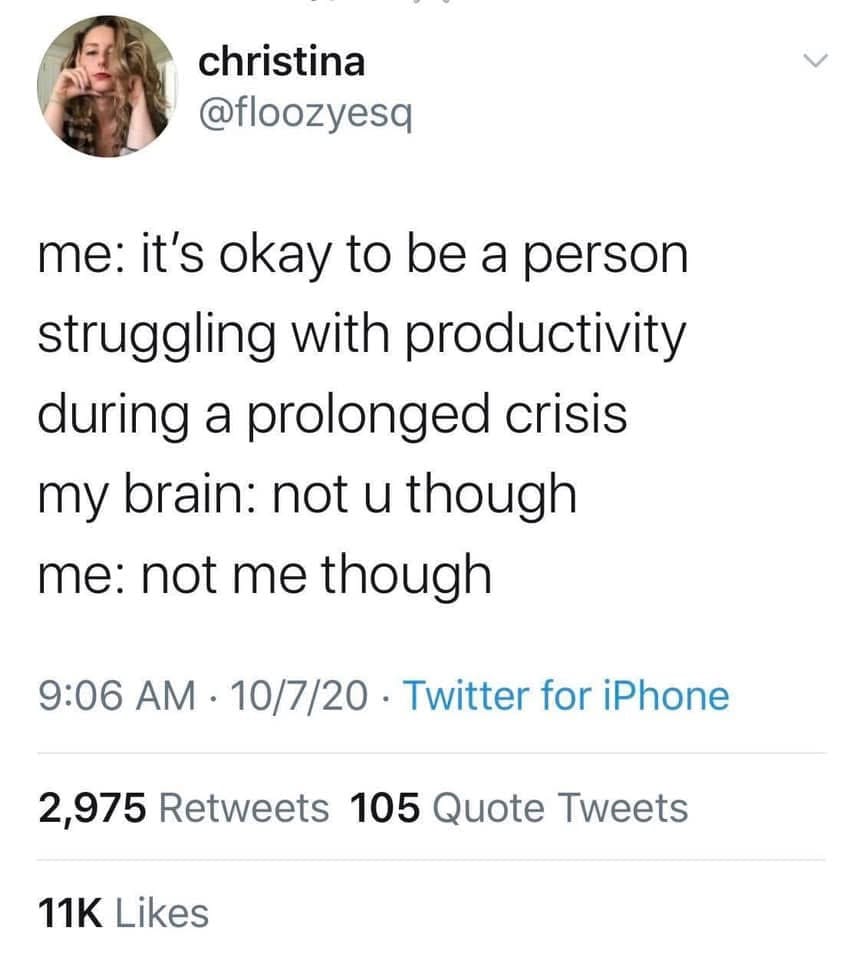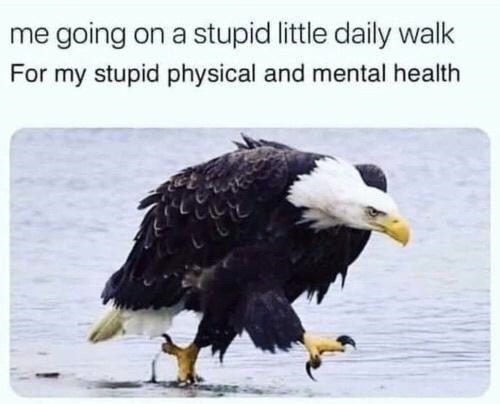Not Me Though

This past December, I had my first anxiety attack.
Some of you may be thinking, "Well done, you made it to 37 years old with your first anxiety attack. I envy you." And I get that.
Some of you know my story. I have a life story that started out very hard with foster care and open heart surgery and bouncing from a couple different homes and feeling rejected. Long story short, because of this traumatic background and history, it taught me, in soul, mind, and body, to be entirely self-reliant, entirely independent, and not needing anybody else's care or concern. Thank you very much.
As I've been in therapy and working on this in my adulthood, some of that has begun to unravel. I've expressed with my therapist, "Yeah, I've never had an anxiety attack. I've never been diagnosed with anxiety or depression or anything like that." My therapist has very gently pointed out, "Yeah, you would never let yourself." It's just this shell, this enamel that's protected me for so long.
So in December, I went to a Christmas party and began to have all of the symptoms of anxiety or panic attack – elevated heart rate, rapid breathing, sweating, and just needing to escape and run away. I found myself sitting in the car, crying (which is a rare thing for me), and having both the feeling of "this sucks" as anxiety attacks do, and also, "Is this a good thing? Is this a good sign that the enamel is beginning to be chipped away in some way that allows me to experience pain that I haven't felt before?"
I told my wife, Emily, about it. Our 2024 was actually a really challenging year for our family. We had a child go through physical and mental health challenges. Church finances at the beginning of the year were difficult. We had to close down our evening service for a while, which felt like a failure as pastor. We had congregation members going through horrendous things that caused some secondhand trauma.
All of that was taking its toll. But this fall, things begin to get better. But as the external stress began to lessen, my body was ready to release that internal steam. After the anxiety attack, I started to notice all the ways that anger was popping up in my life, and sadness, and just this need to stay in bed and hide away from it all.
And—what I’m about to say—I know better. I know better. I have stood on this stage or our evening church stage, and I've talked about the importance of taking your meds. I've said that a theology that claims you don't need medication because God's just going to heal you is trash theology and you should not believe it. You should talk to your therapist and talk to your psychiatrist.
I knew all of that, and yet I had this sort of giant asterisk for myself that said, "Not me, though. I'm a pastor. I'm a theologian. I've gone through worse things. I don't need to talk to my doctor about this."
So I waited two months – which, again, I know in the grand scheme of things, some people wait years before they talk to a professional. I waited two months, which was two months too long, before I finally called up my doctor and told them the non-blog version of this story.
They gave me the assessments, and the assessments came back saying, "Yeah, you have anxiety and depression." I told my therapist all of this and expressed just how that ruined my sense of self-image: independent, self-reliant, been through so many harder things. And even though I would never tell my congregation this – in fact, I've told them the opposite – I secretly believed that my theology and my belief in God made me somehow immune from anxiety and depression.
To which my therapist was just like, "Yeah, that's not how it works, buddy. That's not how it works."
So I got prescribed medication. The meds work. And I began to feel better, and I began to have fewer bad days.
There's no end to the story, now pretty bow to wrap it up. We're in the middle of the story as we speak. I'm still meeting with my doctors, still getting blood work drawn and all that.
But I tell this story as a reminder to myself and as a reminder to all of us that the lies that our culture tells us, the lies that even sometimes our religion tells us – "You're alone. You've got to figure this out on your own. You've got to be self-dependent and self-reliant. And your work is too important for you to stop and rest" – it's a lie from the devil.
And if it can affect your pastor, I know it can affect you. We've got to set those lies down, friends. You deserve to be well. Our God is not interested in any future or present where you are miserable. God is not interested in any theology that tells you that the cost of someone else's joy is your suffering. God is not interested in a story that says that you don't deserve care.
And so we have to create communities where we give ourselves and we give our neighbors and our friends permission to be cared for, to care for ourselves.


Member discussion